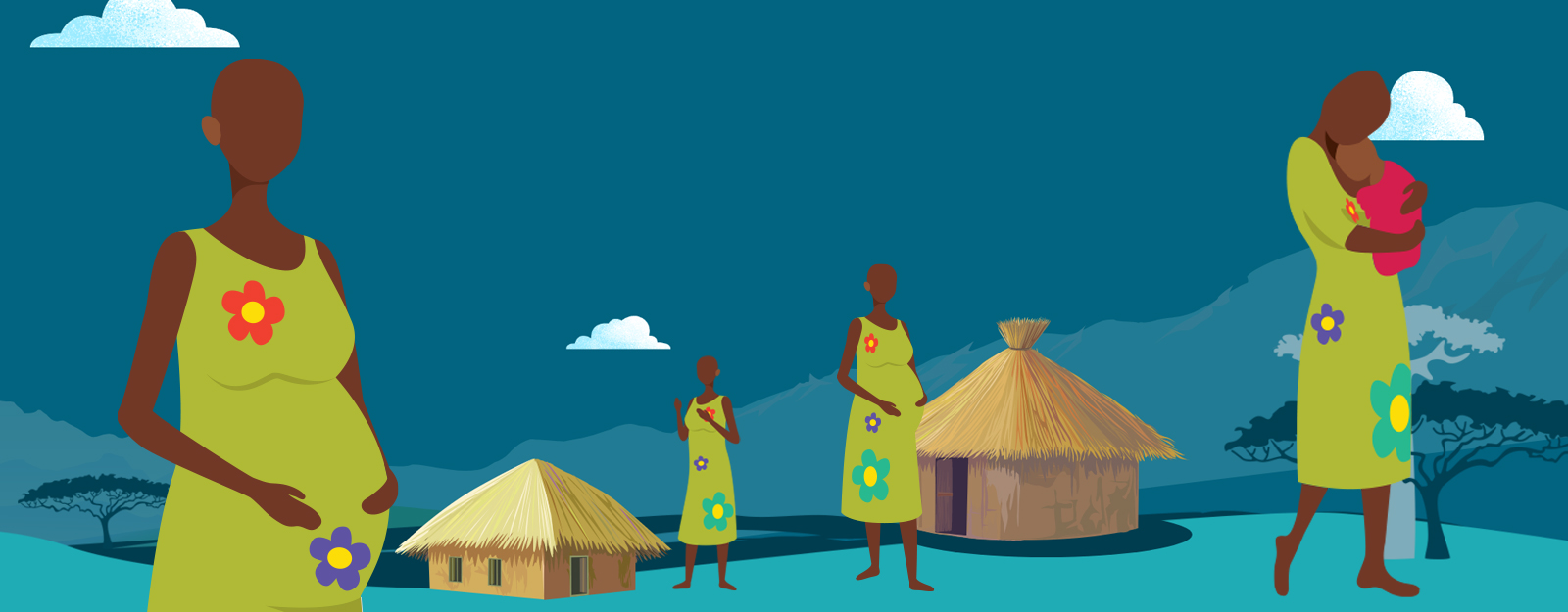Jhpiego listens to nurse, midwives, and mothers, learning that overwork and underpay are just parts of the story
By Maryalice Yakutchik
If nurses and midwives are trained, and health centers equipped, then women will seek pre- and postnatal care. Mothers and newborns will survive and thrive. Development goals will be met. For decades, well-intentioned assumptions like these have prevailed—and largely failed. Maternal and newborn mortality and morbidity rates remain stubbornly high. Global goals, distant.
Casting assumptions aside, Jhpiego sought evidence to change things up. A research team listened to midwives and nurses. It polled pregnant women and new mothers, asking about their real-world experiences in clinics and delivery rooms. The aim was twofold: First, dissect the caregiver-client dynamic; and then, intentionally transform service approaches to ensure safe, respectful, and valuable experiences for all involved.
With Bill & Melinda Gates Foundation support for the Antenatal/Postnatal Care Research Collective (ARC), Jhpiego and ThinkPlace recently published insights and intervention prototypes to raise awareness about the experiences of women and nurses/midwives in Ethiopia, Kenya, Malawi, and Mali. The government of Ethiopia and Midwives Association of Mali also contributed to this research.
“We were hearing women across all the countries say they crave a much more personalized and individual relationship with health providers,” says Jhpiego’s Anne Hyre, a longtime nurse midwife who’s directing the ARC Project. “Some used the word ‘intimate.’ They really want to get to know the health care provider and have the health provider know them.”
The reports show that no matter how modern the facility and skilled the staff, women will not seek care early in, during, or after their pregnancies if care doesn’t resonate with local customs and its value isn’t perceived by women and families. “The way care is provided in so many countries is not conducive to that individualized, personal, intimate care that women desire,” Hyre says. “Women see a different midwife each visit, and see many different health care providers during a single visit. There’s no continuity of care between antenatal and postnatal visits.
“I am struck by how far we are from providing what women want.”
Importantly, these reports also reveal that chronic stress and anxiety often prevent midwives from cultivating relationships with clients and ultimately impact clients’ experience of care, a key driver of care-seeking behavior. Being overworked and underpaid undermines caregivers’ sense of self—and the services they deliver. So too does trauma.
“We’ve been focusing on shortages of human resources, equipment, and medications,” Hyre says. “But this report makes it clear that we’re not going to make real progress until we really address the underlying emotional stressors— the very real trauma that midwives face day to day.”
The reports describe innovations like Club Courage, a simple, low-cost intervention that enables midwives to address stress and trauma by mutually supporting each other.
“Club Courage focuses on the midwives themselves, on their everyday lives,” says Jhpiego’s Aissata Ba, a maternal health care researcher in Mali. “They said that the activity helped decrease their stress levels and left them feeling ‘refreshed,’ which they predict will have a positive effect on their interactions with clients.”
After the midwives used cards specially designed to prompt candid discussions about care of self, clients, parents, family, and colleagues, one of the Mali midwives remarked: “This is the first time that [anyone] is addressing us with an activity specific to ourselves.”
A midwife colleague agreed, adding that previous trainings were strictly technical in scope and always focused on clients. “[Club Courage] reinforces our connections. It’s fun. It’s about changing behavior. It will help us to improve the quality of our care and ease collaboration.”
Learn more about the Antenatal/Postnatal Care Research Collective (ARC).

